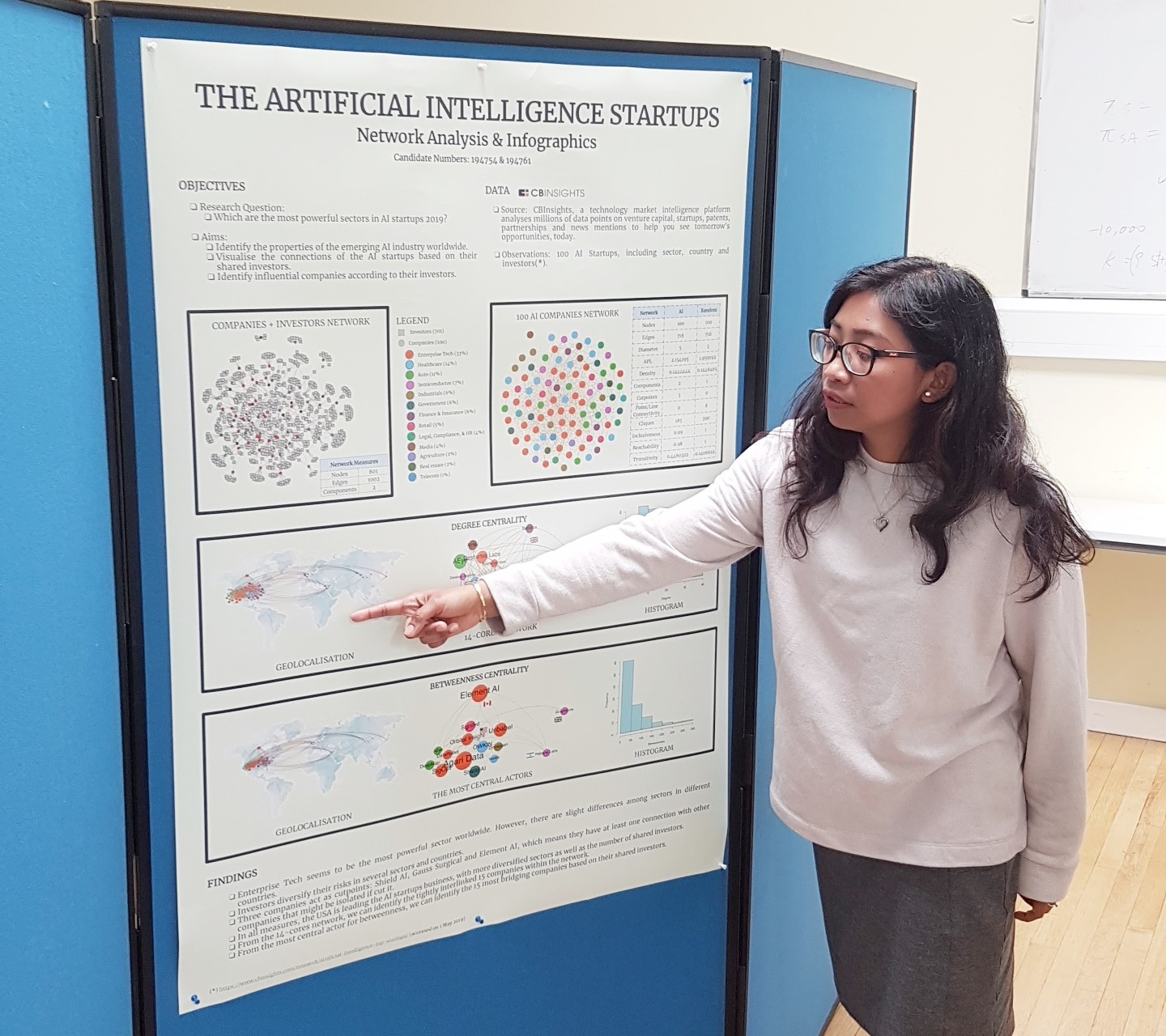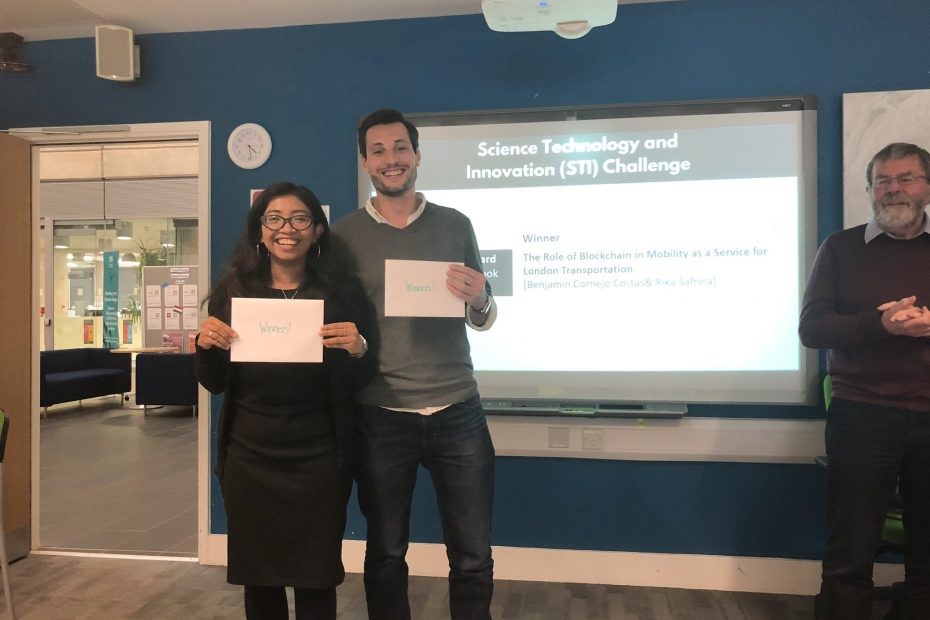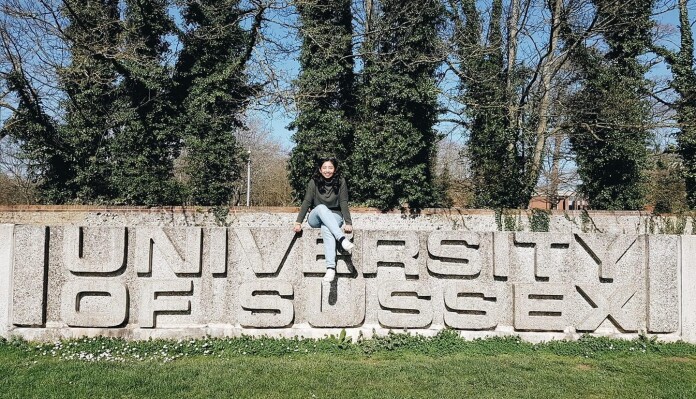While pursuing study abroad might be a dream for some women, there are many who are reluctant. Do you think it is possible to continue your study while taking care of your child? In this article, Rika told us her answer. Already having a daughter did not stop Rika from achieving her dream. Let’s read her journey on how she managed to finish her master’s study in Science and Technology Policy at the University of Sussex, the United Kingdom.
I never imagined diving into Science and Technology Studies (STS) until 2018. As an IT graduate and ICT Professional with 10 years of experience in several multinational companies, the only career path I knew at that time was learning management to be in the managerial position of the IT company.
Going back to school at 32 years-old with a toddler might be difficult. However, I believed getting a Master’s Degree would benefit my career and it was always my dream to study abroad.
In July 2018, I was accepted into two different master’s degree programs at the University of Sussex: (1) Information Technology with Business Management and (2) Science and Technology Policy.
The university asked me to choose between the first program without any scholarship, and the latter one which came with a partial scholarship. Of course, I opted for the one with the funding. That started my journey in the STS field, as well as living my dream of studying in the UK.
STS has several other names, including Science, Technology, and Society (STS); Sociotechnology; Science, Technology, and Innovation Policy (STIP); and Science and Technology Policy (STP) which was my master’s course.
These names are centered around the same idea, which is to study the impact of technological innovation on society, politics, and economics, and likewise, how they affect the development of innovation itself. Scholars in this field do not merely come from the background of social and political sciences but also natural science and engineering.
This area of study is important because science-based policy could tackle real-world challenges in a sustainable way, such as the digital gap, climate change, and inequality. The pioneers who excel in this subject are mostly universities from the UK, the US, and some Western European countries. So, I was glad that I had the opportunity to learn from the experts there.
I learned about public policy during the terms. In one of the classes, the teacher arranged a UN debate mock-up about open science, whether scientific research should be accessible freely for all or be protected with patents. He assigned us with a country to represent, which was very much different from our own nationality, and the position to hold either pro or against open science.
I put more effort in switching my thinking from practical engineering to social science. There is no right or wrong, depending on the political situation of the country, which sometimes did not make any sense to me.
In the other module, we had a role-play exercise where we acted as advisors to senior policymakers in solving an international crisis about a major disease outbreak. It was really stressful because we needed to propose ideas and convince the policymakers for one hour, but it was fun at the same time. The exercise happened in December 2018 and when I look back, a similar situation to my mock-up case was actually happening globally about one year later when the Covid-19 emerged.
Since the course emphasised data-driven policy analysis, we did not only look into policy making but also processing the right data. While public policy and social science were new to me, the data study part comforted me because I had adequate skills in mathematics and coding. For instance, I advanced my statistics knowledge by taking the Quantitative Methods for Science, Technology, and Innovation Studies module.

In addition, I experimented with R programming language and data visualisation during the ‘Network Analysis and Infographics’ class. At that class, we had to create a poster of network analysis for any topic, and I chose to analyse the connection among Artificial Intelligence (AI) startups because I had interest in AI revolutions. The class teacher then became the supervisor for my dissertation, where I investigated AI trends using big data from social media.
Don’t worry, if the students did not come from Science, Technology, Engineering and Mathematics (STEM) backgrounds, they could take an introduction module to quantitative research that the course offered. Even the programming class was designed to be easy for beginners. Most of my classmates, women especially, did not have experience in coding before but they were still able to follow the lessons.
My course STP is under the department of Science Policy Research Unit (SPRU), together with other attractive master’s courses like Energy Policy and Sustainable Development.
SPRU was founded in 1966 and one of the world’s first interdisciplinary research centres in the field of science and technology policy. SPRU’s world-renowned, multi-disciplinary research has helped policy makers to address real-world problems for over 50 years. In 2018, it was ranked as the first science and technology think-tank in the UK and 3rd globally. I am proud to be a part of SPRU.
Apart from the challenging classes, every year SPRU organizes Science, Technology, and Innovation (STI) Challenge for the master students to come up with ideas to address any policy problem. The participants would give a short appealing presentation in front of the judges and audiences including professors of SPRU.

In the 2019 STI Challenge, my classmate and I presented this proposal about “The Role of Blockchain in Mobility as a Service for London Transportation”, and we received the main prize.
It was not always good times though, as I struggled in some parts too. I was living in the UK with my 4 years old daughter alone, while my husband was in Indonesia. Every morning I sent her off to school first, before rushing to my campus. Several days I needed to skip classes, yet fortunately I could catch up by watching the recordings. I am grateful that the university has family rooms on the campus, especially in the library where I could study while my child played in the children’s corner. Nevertheless, we spent a wonderful time in the UK.
I do not regret at all my decision to shift my career from a pure technical IT field to a multidisciplinary area that combines IT with social and political sciences. Although it was a little bit of an accident, I love it and hope to work more on STS in the future.
For women out there, it’s never too late to go back to school, and start learning something new like STS or STEM.
***
If you are a woman seeking a scholarship to continue study in STEM in the UK, the British Council Scholarship for Women in STEM (WIS) provides a full package scholarship support including special allowance for children and pre-sessional English course. The application for WIS closes on 5 April 2021. Don’t miss out on the opportunity by keeping update to scholarship opportunities from the British Council.
Visit British Council’s website at www.britishcouncil.id and follow its Instagram account @idbritish.
***
All photos are provided by the Author.
Editor: Haryanto









